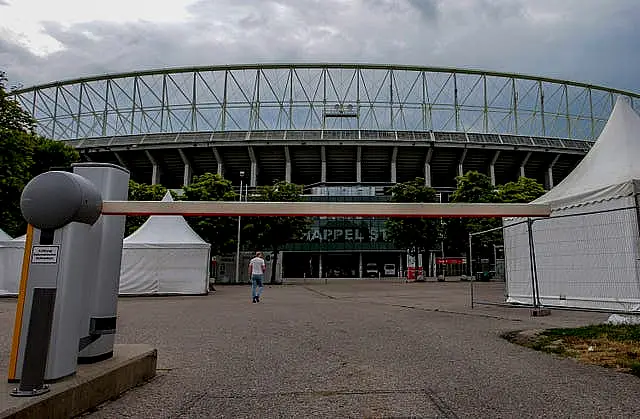Chemical substances have been found at the home of a 19-year-old Austrian suspected of planning an attack on forthcoming Taylor Swift concerts in Vienna, Austria’s intelligence chief has said.
Franz Ruf, public security director at Austria’s Interior Ministry, told public broadcaster ORF’s Oe1 programme on Thursday that, following the arrest of two suspects earlier this week, investigators found chemical substances and technical devices at the teenage suspect’s house and these are now being evaluated.
He added that, just a few weeks ago, the suspect had uploaded an oath of allegiance to the current leader of the Islamic State group militia to an internet account.
A second person was arrested in the Austrian capital, and officials confirmed no other suspects are being sought.
The cancellations of the concerts devastated Swifties across the globe, many of whom had spent thousands of euros on travel and accommodation in Austria’s expensive capital city for the US singer’s sold-out Eras Tour shows on Thursday, Friday and Saturday at the Ernst Happel Stadium.
The venue was deserted on Thursday morning apart from media filming outside.

Austrian Vice-Chancellor Werner Kogler wrote on social media platform X, formerly Twitter: “For many, a dream has been shattered today. On three evenings in Vienna, tens of thousands of #Swifties should have celebrated life together.
“I am very sorry that you were denied this. Swifties stick together, hate and terror can’t destroy that.”
Mr Ruf said authorities were aware of “preparatory actions” for a possible attack “and also that there is a focus by the 19-year-old perpetrator on the Taylor Swift concerts in Vienna”, the Austria Press Agency reported.
The Austrian citizen is believed to have become radicalised on the internet. Mr Ruf did not give more details, such as the suspects’ names, in line with Austrian privacy law.
Event organiser Barracuda Music said in an Instagram post late on Wednesday: “We have no choice but to cancel the three scheduled shows for everyone’s safety.” It cited government officials’ confirmation of a planned attack at the stadium.

The cancellation came hours after authorities said security measures for the Swift concerts would be stepped up. Mr Ruf had previously said there would be a special focus among other things on entry checks, and concertgoers should allow a bit more time.
Vienna Police Chief Gerhard Purstl said at the same time that, while any concrete danger had been minimised, an abstract risk justified raising security.
Austrian Chancellor Karl Nehammer posted on X that “the cancellation of the Taylor Swift concerts by the organisers is a bitter disappointment for all fans in Austria”.
“The situation surrounding the apparently planned terror attack in Vienna was very serious,” he wrote.
But he added that, thanks to intensive co-operation between police and Austrian and foreign intelligence, “the threat could be recognised early on, tackled and a tragedy prevented”.
Barracuda Music said “all tickets will be automatically refunded within the next 10 business days”. The same wording was posted under the Vienna dates on Swift’s official website.
The Vienna stadium had been sold out for the planned concerts, APA reported, with an estimated 170,000 fans expected for the concerts in Austria.
Some who posted on X lamented months of now-wasted efforts to make friendship bracelets and pick out fashionable outfits for the performance.

The cancellations came just over a week after a stabbing attack in the north-west England seaside town of Southport during a Taylor Swift-themed summer holiday dance and yoga class in which three young girls were killed and 10 others injured. A 17-year-old boy has been charged with murder.
In 2017, an attack at an Ariana Grande concert in Manchester, in northern England, killed 22 people. Suicide bomber Salman Abedi detonated a backpack bomb in Manchester Arena at the end of the show as thousands of young fans were leaving. More than 100 people were injured. Abedi died in the explosion.
An official inquiry reported in 2023 that Britain’s domestic intelligence agency, MI5, did not act swiftly enough on key information and missed a significant opportunity to prevent the bombing, the deadliest extremist attack in the UK in recent years.







